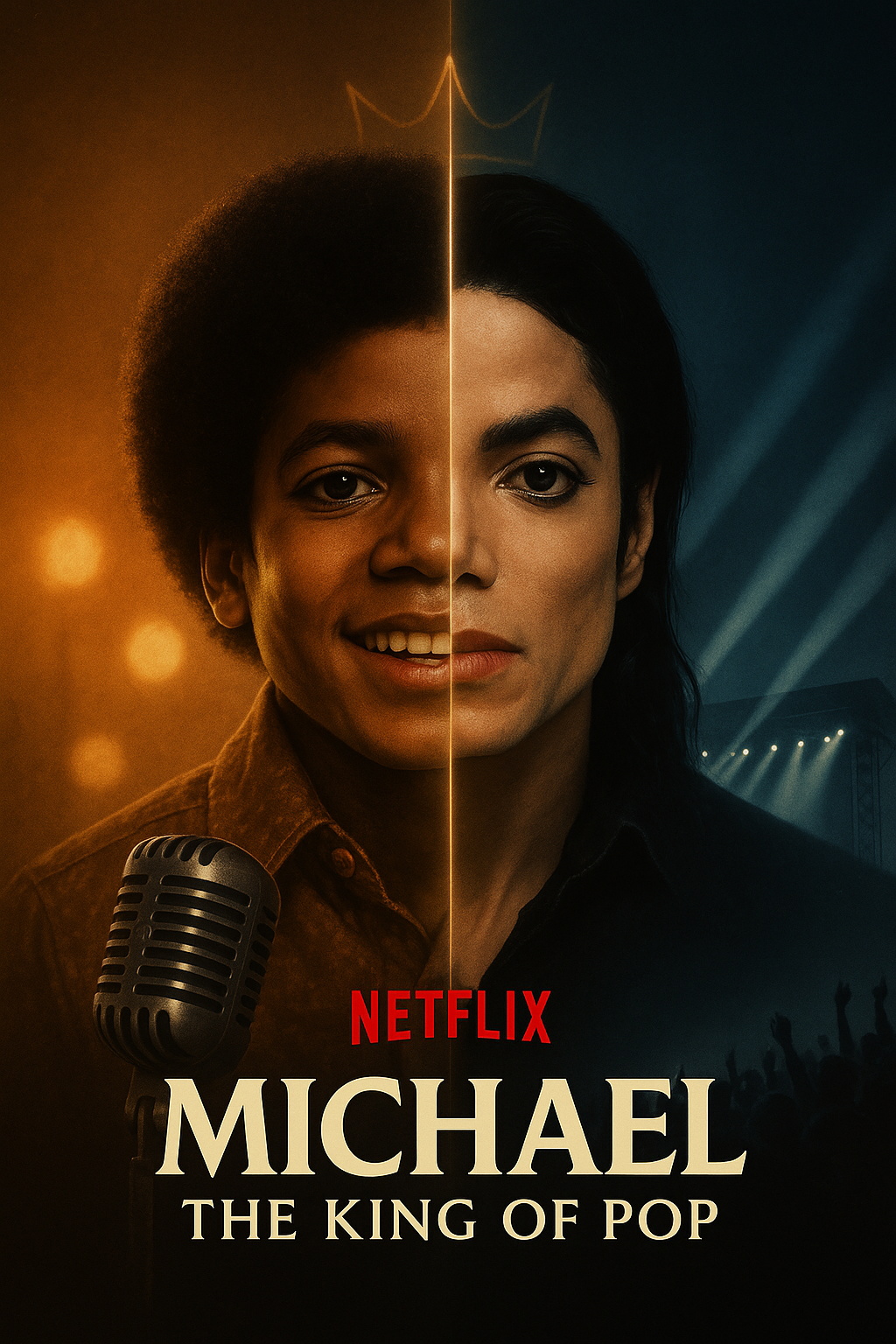
Netflix Releases a Biopic About the Legendary Career of Michael Jackson Watch here
Netflix has once again set the entertainment world abuzz with the release of its latest high-profile biopic – Michael: The King of Pop. The long-anticipated film chronicles the extraordinary life and career of Michael Jackson, widely regarded as one of the most influential figures in the history of music. With his signature moves, groundbreaking albums, and controversial personal life, the late icon’s story has now been given the Netflix treatment, blending emotional storytelling, rare footage, and dramatic reenactments to create a cinematic masterpiece.
The biopic takes viewers on a chronological journey from Jackson’s humble beginnings in Gary, Indiana, to his meteoric rise with The Jackson 5. Using a mix of child actors and archival material, Netflix paints a vivid picture of a young boy thrust into the limelight under the stern guidance of his father, Joe Jackson. The storytelling in this segment emphasizes both the beauty and the burdens of early fame, capturing Michael’s initial love for music as well as the pressures of performing from a tender age.
As the film progresses, it transitions seamlessly into Michael’s breakout solo years, focusing on the release of his iconic albums Off the Wall, Thriller, and Bad. These were the years when he transformed from a talented singer into a global superstar. Netflix spares no detail in showcasing the intense rehearsal sessions, studio perfectionism, and creative partnerships with industry legends like Quincy Jones. It also recreates the historic “Motown 25” performance where Michael debuted the moonwalk – a moment that left the world spellbound.
One of the most gripping elements of the biopic is how it dives into the psychological toll of fame. Through dramatized inner monologues and recreated interviews, viewers get a glimpse of Michael’s inner battles – his desire for artistic freedom, the pain of media scrutiny, and his struggles with identity. The film doesn’t shy away from exploring the complex emotions behind his changing appearance, his soft-spoken demeanor, and his increasingly reclusive lifestyle.
Netflix also dedicates significant screen time to Jackson’s humanitarian work. From his global Heal the World campaigns to his visits to children’s hospitals and underprivileged communities, the film highlights a side of Michael that is often overshadowed. Testimonials from those who worked closely with him during his charity missions lend authenticity and depth to this portrayal, reminding audiences of the compassion that defined much of his life.
A particularly emotional part of the film captures the 1993 child abuse allegations and their devastating impact on Michael’s personal and professional life. While the biopic does not take a definitive stance, it presents the events with sensitivity and allows viewers to reflect on the toll these controversies took on the man behind the music. Archival news footage is used alongside fictionalized courtroom scenes, giving the story a documentary-like realism.
In the later chapters, the biopic follows Jackson’s attempt at a comeback with the HIStory album and his This Is It tour preparations. The narrative here focuses on an aging but determined artist, still obsessed with perfection, battling chronic health issues, and yearning for redemption. Behind-the-scenes reenactments of rehearsals and team meetings are both inspirational and heartbreaking, especially knowing what fate lay ahead.
Perhaps the most haunting moment in the film is the depiction of Michael’s final hours before his sudden death in 2009. Netflix handles this with subtlety – no graphic scenes, just a somber mood, the sound of a ticking clock, and shots of his empty rehearsal stage. The aftermath is shown through global reactions, candlelight vigils, and fans around the world mourning the loss of their beloved icon.
The casting for the biopic has received widespread acclaim. A relatively unknown actor, Jalen Parker, portrays Michael with stunning accuracy – nailing his voice, body language, and emotional depth. Supporting performances, including the roles of his siblings, his mother Katherine, and various collaborators like Quincy Jones and Diana Ross, add further authenticity to the story. Even critics have praised the balance between dramatization and respect for factual history.
Beyond its storytelling, the biopic stands out for its production quality. From elaborate costume design to flawless choreography and digital recreations of classic performances, Netflix clearly spared no expense. The Thriller and Billie Jean sequences, in particular, have left fans in awe. The soundtrack, naturally, features remastered versions of Jackson’s greatest hits, making the film a nostalgic musical journey as well.
Since its release, Michael: The King of Pop has sparked both praise and debate. While many applaud the film for honoring his legacy and exploring the man behind the myths, others question whether it sufficiently addresses the controversies. Regardless of opinion, one thing is clear – the Netflix biopic has reignited global interest in Michael Jackson, with millions revisiting his music and legacy.
In the end, Michael: The King of Pop serves not just as a tribute, but as a powerful reminder of the complexities that come with being a legend. Netflix has delivered a deeply human portrait of a man who changed music forever, yet never truly found peace in his lifetime. For longtime fans and new generations alike, the film is both an emotional ride and a celebration of a once-in-a-century talent who left the world too soon.
You may also like
Written by Bitssport
Archives
Calendar
| M | T | W | T | F | S | S |
|---|---|---|---|---|---|---|
| 1 | ||||||
| 2 | 3 | 4 | 5 | 6 | 7 | 8 |
| 9 | 10 | 11 | 12 | 13 | 14 | 15 |
| 16 | 17 | 18 | 19 | 20 | 21 | 22 |
| 23 | 24 | 25 | 26 | 27 | 28 | |